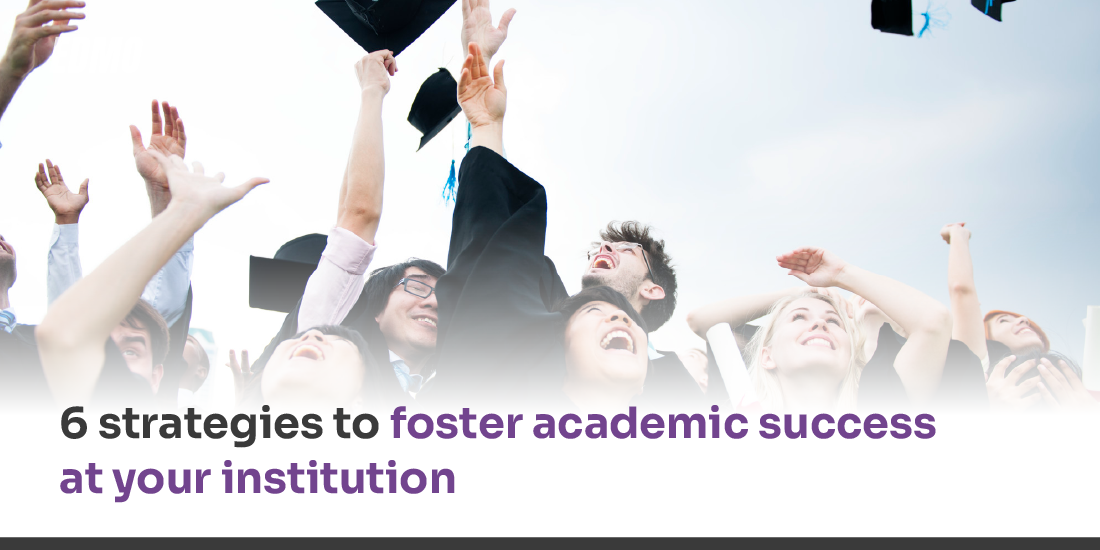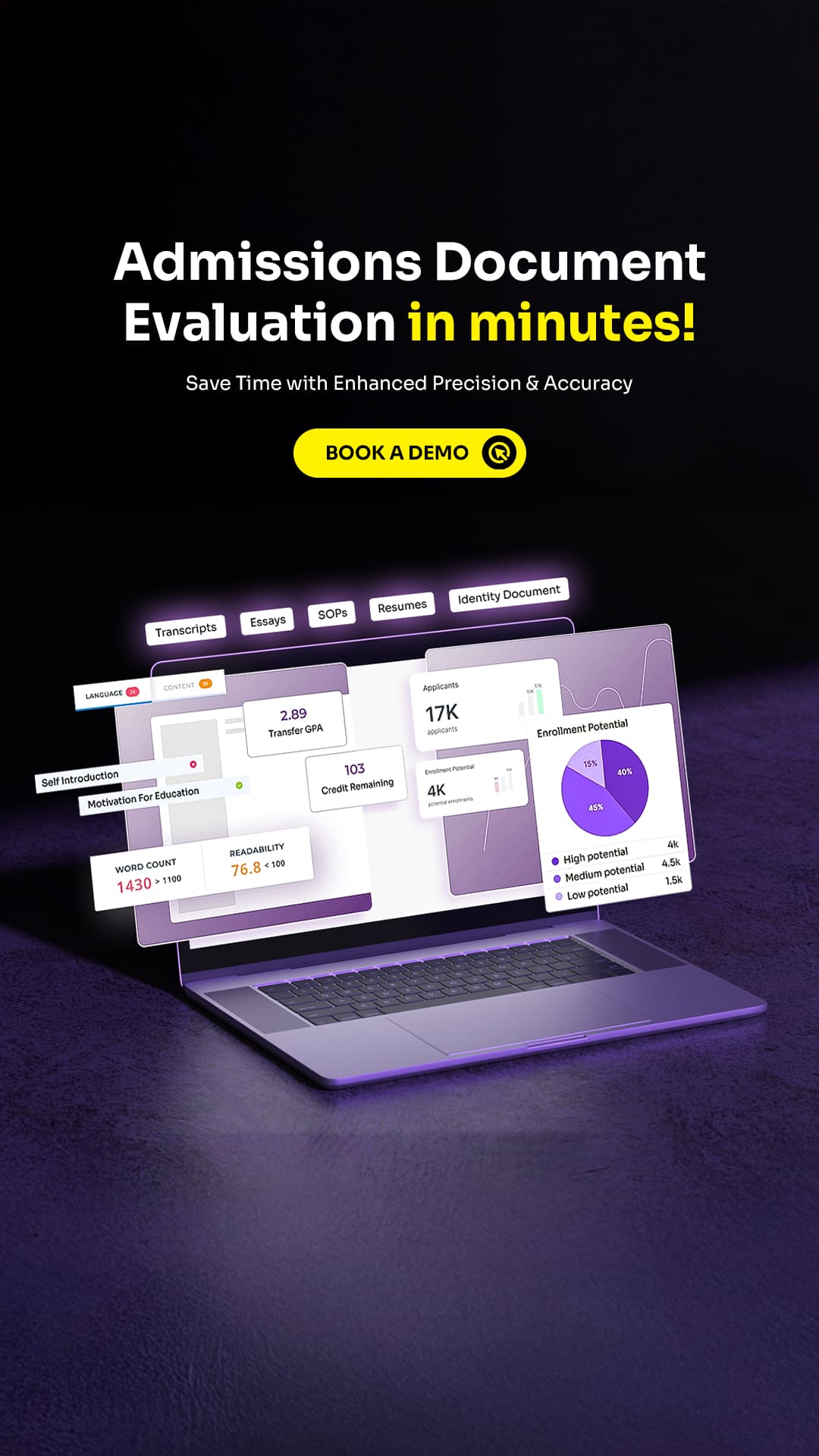In educational institutions, academic success is crucial since it is frequently utilized as a performance indicator. However, using planned strategies to foster academic success at your institution might be challenging. Here are a few to aid you in the process of improvising academic success at your institution.
Table Of Contents
What is academic success?
The achievement of summative examinations, as required by learning outcomes, has always been linked to the idea of academic success. However, the definition of academic success is complex and subjective, varying across different perspectives.
In fact, academic success can refer to both the graduates’ ability to land professional employment connected to their degree and their achievement of knowledge proven by excellent evaluation marks.
Academic success, participation in activities with an educational purpose, happiness, acquiring desired information, skills, and competencies, tenacity, achieving educational objectives, and post-college performance are the six factors that York cites as defining it.
York cites factors such as participation in activities with an educational purpose, happiness, acquiring desired information, skills and competencies, tenacity, achieving educational objectives, and post-college performance to define academic success.
Broward College illustrates how it used the American Associate of Colleges and Universities (AACU) definition of student success. The aims and circumstances of each student define the most accurate definition of student success.
Since there are so many different ways in which students thrive every year, no single holistic statement or straightforward collection of measures can provide a full and meaningful picture of those successes.
Why is student success critical?
Academic achievement is crucial because it is closely related to the desired outcomes we value. Students who perform well academically and have higher levels of education are more likely to be employed, have stable employment, and have more employment opportunities.
They are also more likely to earn higher salaries, be less reliant on social assistance, be more involved in their communities, and be healthier and happier. The future workforce will require greater education levels to handle the technologically demanding jobs. All this makes academic achievement a crucial aspect of one’s life.
Academic achievement is crucial because it is closely related to the desired outcomes we value. Adults who perform well academically and have higher levels of education are more likely to be employed, have stable employment, and have more employment opportunities than adults with lower levels of education.
They are also more likely to earn higher salaries, have health insurance, be less reliant on social assistance, be less likely to commit crimes, be more involved in their communities and volunteer for charitable causes, and be healthier and happier. The future workforce will require greater education levels to handle the technologically demanding jobs. Therefore, academic achievement is crucial.
6 strategies to foster academic success
Now that we know the importance of achieving academic success, here are 6 ways universities can help students be closer to success.
1. Enhanced onboarding
You should follow the counsel you were given as a child: Initial impressions have a lasting effect.
How new and transfer students are welcomed on campus has an ongoing effect on how successful they become. A committed advisor is introduced to students by successful universities. They educate students about the possibilities and resources available on campus. Besides, they emphasize the institution’s dedication to giving students the assistance and resources they require to succeed. ****Additionally, they provide boot camps and pre-enrollment bridging programs to help students succeed in their first-year courses. This enhanced way of onboarding students can make them feel inclusive in the process.
2. A robust first-year experience
Students must start on the right foot if they want to succeed. The integrated first-year experience known as Meta Majors, which is based around groups of classes with a shared purpose, provides new students with a welcoming community, close relationships with teachers and classmates, committed advisers, and a variety of exciting, high-impact opportunities.
The best Meta Majors aid students in exploring potential majors and vocations and offer instruction in time management and study techniques.
3. Data-informed proactive advising
Data utilization on campus doesn’t have to be too complicated. Early notifications let advisers know when a student is in difficulty, for instance, by poor performance on early assignments or an unusually low course enrolment.
The use of learning centers, tutoring, study clubs, and additional education can be encouraged among the pupils. Identifying courses with extremely high DFW ****classes might also lead to course modification.
4. Early exposure to career planning
Most students enroll in college in order to start a rewarding profession. Early in their undergraduate careers, institutions must give students pertinent information about the labor market, including details on booming industries, entry-level pay, in-demand talents, and educational needs for certain positions.
Schools must also connect students to alums who have graduated with certain majors and tell them of the job options related to each major. These seminars can assist students in developing high-demand skills. Besides, they can provide pre-professional coaching and activities to better prepare students for postsecondary education or the labor market.
5. Enhanced student support services
Most kids leave school due to difficulties in their personal lives rather than scholastic issues. Successful universities provide emergency financial aid as well as support for housing, transportation, food, and childcare to help students overcome these obstacles.
6. Fostering a success-oriented mindset and sense of belonging
Dropouts frequently experience unacceptance on campus and a lack of ability to perform to a college’s academic standards. However, institutes can encourage students to participate in on-campus events and student organizations to make them feel included.
By implementing “take your professor to lunch” programs or incorporating co-curricular activities (such as trips to the museum or a play) into the curriculum, these schools promote closer relationships between students and professors.
Conclusion
Student achievement can be seriously hampered by challenging and apparently pointless degree requirements, roadblock courses, and unavailable or inconvenient classes. These challenges occasionally make sense from a pedagogical standpoint. However, when they don’t, something needs to change.
The most prosperous schools have increased the number of available courses by taking the digital route. Degree requirements have been streamlined, and obstacles in the curriculum have been addressed. They have established a successful school culture that emphasizes both academic and professional achievement, which can significantly impact student success.
Also Read: How can technology help in higher education marketing?
How to Increase Student Enrollment in Private Schools?
How to recruit prospective students using Omnichannel Marketing?










No comments yet. Be the first to comment!
Leave a Comment